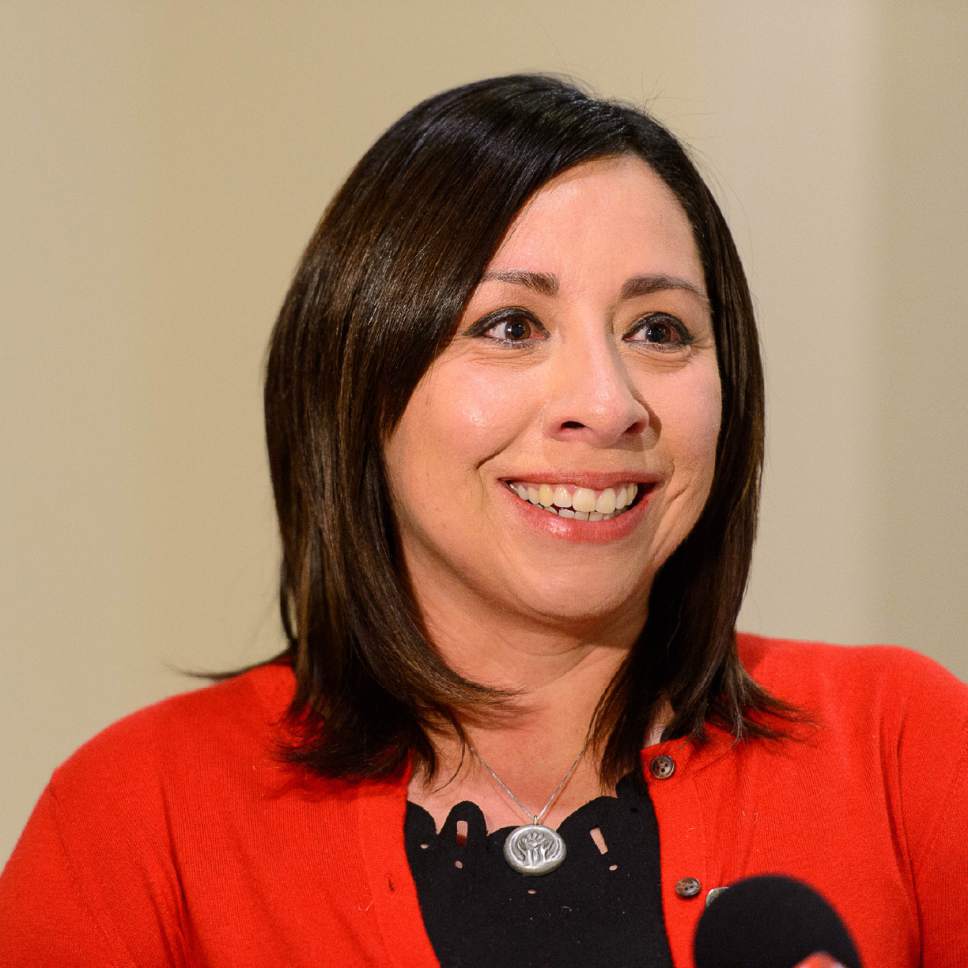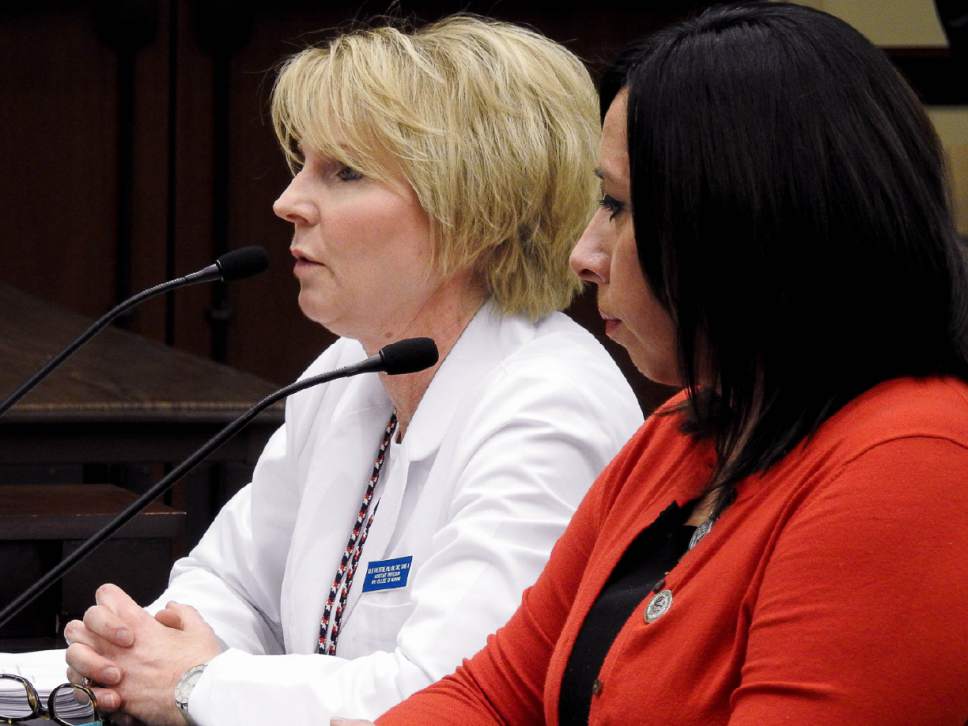This is an archived article that was published on sltrib.com in 2017, and information in the article may be outdated. It is provided only for personal research purposes and may not be reprinted.
Utah lawmakers have passed a bill that would require all rape kits be tested for DNA at the state's crime lab — but at half the funding originally sought.
The Senate unanimously passed HB200 on Tuesday, and the bill is now on its way to Gov. Gary Herbert for his signature, veto or omission.
Bill sponsor Rep. Angela Romero, D-Salt Lake City, said Wednesday that she was "ecstatic" that the measure soon may become law.
"This is a victory for everyone when we talk about sex assault kits," Romero said. "The focus is usually on women, but men are also victims of sexual assault. It's important if someone goes through the [evidence-collecting] procedure, that they get the results."
The bill gives Utah's law enforcement agencies 30 days to submit rape kits to the Utah crime lab after collection, with testing required at a to-be-determined deadline. It would also create a tracking system for rape kits and fund trauma-sensitivity training for police officers.
Legislative analysts figured an extra $2.4 million a year was needed to hire additional crime lab employees to keep up with the higher demand — but the bill ultimately was funded at $1.2 million.
Crime lab Director Jay Henry has estimated the original funding would allow his facility to test an additional 800 tests a year, by hiring 17 new analysts and funding the costs of DNA supplies and a sex-assault-kit tracking system.
Henry said Wednesday the allotted funding will still be used to hire more crime lab workers to process the rape kits and develop the tracking system.
He said the latest boost in funding is the largest ongoing increase in the crime lab's budget in recent memory. He expressed gratitude for lawmakers for their support in not only the efforts to test all rape kits, but also in their funding of a new crime lab, which workers moved into this month.
It will likely take another year, Henry estimated, before crime lab officials will be able to determine whether they'll need more funding to keep up with the number of submitted kits.
"It may not be at the ideal turn-around time that we'd like to get to," he said. "But we'll certainly be in a lot better [position] than we are now."
Romero said that $187,000 of the $1.2 million would be put toward educating police officers about understanding the impacts of trauma, common myths of sexual assault and abuse, and how to deliver services to victims in a "compassionate, sensitive and nonjudgmental manner."
The lawmaker said she'll likely ask for more funding for rape-kit testing during the legislative session next year.
Brigham Young University associate professor Julie Valentine, who has researched Utah's sex-assault-kit backlog and supported HB200, called the passing of the bill "truly revolutionary." However, she does have lingering concerns about the money.
"I am certain increasing the funding will be necessary next year," she said, "but the passage of HB200 is huge."
Valentine said the tracking system and training shouldn't be overlooked.
"The tracking system will assure we don't have the issue of unsubmitted kits happening anymore," she said, "because it will allow transparency and also empowers victims."
Other advocates for crime victims also applauded Utah's efforts in mandating rape-kit testing. Ilse Knecht, director of policy and advocacy for the Joyful Heart Foundation, said Wednesday that every untested kit represents a "missed opportunity" to bring justice and healing to survivors, and increase community safety. The national nonprofit runs "End the Backlog," a program focused on the backlog of rape kits nationwide.
"Utah has now joined the growing number of states that have passed laws requiring sexual assault kit audits or some type of mandatory submission guidelines," Knecht said in a statement. "These laws will expand what we know about the true extent of the number of untested rape kits and will result in thousands of cases for law enforcement to investigate and prosecute."
Besides falling behind on current cases, Utah officials are also working through a backlog of old kits that often had been sitting for years in evidence rooms around the state.
Henry has said the state has processed about half the 2,760 untested kits identified, with the help of grants. He said the lab expects to finish that project next year.





